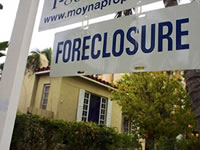Refinance > Refinancing Series of Articles
Refinance
Refinancing: Know the Process, and the Closing Costs
by Amy Lillard
You've already got a mortgage, so you know what's involved in getting another one. Right?
Yes and no. Refinancing, the process of paying off your existing mortgage with a new one, does involve many of the same steps as your original purchase. But there are some complications and new issues.
The process of refinancing begins with information. Your lender will need to evaluate your eligibility for a refinance. This involves completing a loan application that assesses your financial situation and credit history – a sign of your ability and willingness to repay debt. In addition the application will require information on the property value of your home, based on current market value, as well as the equity in your home.
Information the lender will need as part of or in addition to your loan application:
-
Personal info:
- Verification of your employment and income
- Information on your debts and assets
- Account numbers and balances for savings, checking and other accounts.
-
Mortgage information:
- Current monthly mortgage payments
- Outstanding mortgage balance
- Status of your property tax and insurance payments and loan number.
-
Other information:
- Appraisal to determine how much the home is worth. In many cases, an exterior-only appraisal is all that's needed.
- Title search to verify you own the property
- Site survey. The survey completed when you first purchased the home may be sufficient. (This is not always required)
With much of the information above, fees will be assessed. And that is the most painful and perhaps most overlooked portion of the refinancing process.
Most of these fees will be very familiar to you as part of your original mortgage application and closing costs. The refinancing costs you will likely face include:
- Application fee: Covers the lender's processing time and effort
- Appraisal fee: Charged by the appraiser to determine your home's value
- Credit report: As part of determining your debts, assets, credit and ability to pay back debt, lenders will usually order a credit report for a nominal fee. This also serves to verify information you've provided elsewhere.
- Legal services: For review of the contract and other closing or consultation needs
- Loan origination fee: Usually a percentage of the loan, this covers the lender's work in evaluating and processing the loan
- Pre-Payment Penalty: Your existing mortgage may require a percentage of the outstanding principal as a penalty for paying off the mortgage earlier than originally agreed. Many state and local laws govern this penalty; so check your original loan documents for details.
- Survey: While the survey conducted when you first purchased your home may be sufficient, the lender may require a new survey of your property. Lenders want to ensure no significant changes that would affect future sales.
- Title search: Charge for examining public records to confirm you own your property.
- Miscellaneous fees: Depending on your loan type, you may incur additional fees, such as private mortgage insurance. Additionally, you may be charged document preparation, notary and tax service fees.
If you are refinancing with your original lender, some of these fees can be avoided or negotiated. For example, new appraisals are often not necessary. Check with new mortgage lenders on their flexibility on fees. You'll find many willing to negotiate.
Learn more about refinancing with our continuing article series, including the reasons to refinance and types of refinancing, as well as common mistakes and ideal timing.
Related Article:
Appraisal Controversy Continues
Refinancing: Five Reasons to Rework your Mortgage

